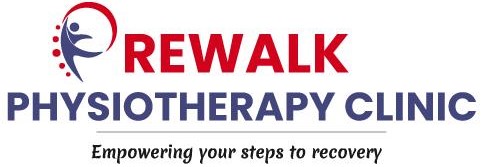Staying active during pregnancy is vital for both mother and baby. It helps with managing weight and boosts mood. But did you know that physiotherapy for antenatal exercises could be key? These exercises cater specifically to the body’s unique needs during pregnancy, addressing issues like aches and helping prepare for childbirth. Importantly, exercise, when guided by a skilled physiotherapist, is safe for your baby. This blog will explore how these specialized exercises can enhance your pregnancy journey, offer comfort, and support both physical and emotional wellbeing.
Understanding Antenatal Physiotherapy
Antenatal exercises physiotherapy is specialized care focused on maintaining fitness and addressing discomfort during pregnancy. Prenatal physiotherapists are experts who understand the physical changes that happen. They personalize exercises to fit each stage of pregnancy.
You can start antenatal physiotherapy at any pregnancy stage, but early initiation offers the most benefits. Unlike generic exercises, these sessions focus on issues like posture, pelvic stability, and core strength to support your changing body effectively. By distinguishing these exercises from general fitness routines, women are empowered to experience healthier pregnancies, making sure that any discomfort is minimized while optimizing overall wellbeing.
Key Benefits of Antenatal Physiotherapy
Physical Benefits
- Pain Relief: Pregnancy brings back pain and other aches. These exercises can ease those discomforts.
- Strength and Flexibility: They help build strength and flexibility, prepping your body for labor.
- Weight Management: Staying active aids in managing weight healthily during pregnancy.
- Lower Risk of Complications: Engaging in these exercises may lower the risk of complications like gestational diabetes and preeclampsia.
- Digestive Relief: Exercise can help with common issues like constipation.
Labor and Delivery Advantages
- Strength for Pushing: Exercises strengthen muscles used during labor for more effective pushing.
- Easier Labor: These activities can simplify labor, potentially reducing medical interventions.
- Perineal Preparation: Techniques such as perineal massage and biofeedback may help ease delivery.
- Fewer C-Sections: Evidence points to fewer C-sections with regular exercise.
Postpartum Recovery
- Faster Recovery: Exercise supports a quicker recovery after childbirth.
- Pelvic Health: Antenatal exercise helps prevent pelvic floor dysfunction and incontinence.
- Return to Routine: It aides in smoothly transitioning back to regular activities and fitness.
- Mental Health Boost: Staying active promotes mental wellbeing during postpartum.
Essential Antenatal Exercises to Know
Pelvic Floor Strengthening
- Kegel Exercises: These exercises strengthen the pelvic floor muscles. They’re crucial for controlling bladder and bowel functions.
- Workout Tips: Squeeze those muscles for 3 seconds, relax, and repeat. Aim to do it several times a day.
Core Strengthening
- Gentle Core Exercises: Maintain abdominal strength with safe pelvic tilts and seated leg lifts.
- Prevent Diastasis Recti: Focusing on core stability protects against separation of abdominal muscles.
Posture and Balance
- Posture Techniques: Keep shoulders back, chest up, and avoid locking knees to improve posture.
- Balanced Alignment: Good alignment supports joints and reduces pain or falls.
Relaxation Techniques
- Breathing Exercises: Deep breathing helps manage stress and prepares for labor.
- Stretching and Mind-Body Connection: Gentle stretching relieves tension and fosters relaxation.
When to Start and Safety Considerations
Starting antenatal exercises physiotherapy is ideal in the early stages of pregnancy to reap full benefits. However, always listen to your body. If discomfort arises, pause and consult with a healthcare provider. As pregnancy advances, exercise modifications ensure safety and comfort. Certain medical conditions might also require special oversight from professionals.
Finding the Right Physiotherapist
Choosing a qualified prenatal physiotherapist involves some key criteria:
- Experience: Look for someone experienced in dealing with pregnant clients.
- Consultation: Ask questions about their approach, techniques, and outcomes during your initial meeting.
- Session Expectations: Expect personalized assessments and plans tailored to your needs.
Personal guidance is invaluable. It ensures exercises are correctly done and effectively benefit your pregnancy, addressing those specific aches and needs.
Conclusion
In conclusion, engaging in physiotherapy for antenatal exercises offers tremendous benefits. From easing aches to enhancing pregnancy comfort and preparing for labor, the advantages are numerous. Discuss these options with healthcare providers. Prioritize physical wellbeing during pregnancy by exploring these tailored exercises. Empower yourself to enjoy a healthier, more comfortable pregnancy journey through these proactive steps.
Consult with Rewalk Physiotherapy today for personalized antenatal exercises and expert care, ensuring a smoother, more comfortable pregnancy experience!


